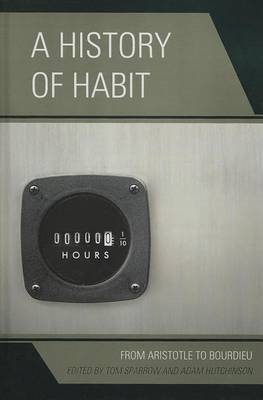From bookshelves overflowing with self-help books to scholarly treatises on neurobiology to late-night infomercials that promise to make you happier, healthier, and smarter with the acquisition of just a few simple practices, the discourse of habit is a staple of contemporary culture high and low. Discussion of habit, however, tends to neglect the most fundamental questions: What is habit? Habits, we say, are hard to break. But what does it mean to break a habit? Where and how do habits take root in us? Do only humans acquire habits? What accounts for the strength or weakness of a habit? Are habits something possessed or something that possesses? We spend a lot of time thinking about our habits, but rarely do we think deeply about the nature of habit itself.
Aristotle and the ancient Greeks recognized the importance of habit for the constitution of character, while readers of David Hume or American pragmatists like C.S. Peirce, William James, and John Dewey know that habit is a central component in the conceptual framework of many key figures in the history of philosophy. Less familiar are the disparate discussions of habit found in the Roman Stoics, Thomas Aquinas, Michel de Montaigne, Rene Descartes, Gilles Deleuze, French phenomenology, and contemporary Anglo-American philosophies of embodiment, race, and gender, among many others.
The essays gathered in this book demonstrate that the philosophy of habit is not confined to the work of just a handful of thinkers, but traverses the entire history of Western philosophy and continues to thrive in contemporary theory. A History of Habit: From Aristotle to Bourdieu is the first of its kind to document the richness and diversity of this history. It demonstrates the breadth, flexibility, and explanatory power of the concept of habit as well as its enduring significance. It makes the case for habit's perennial attraction for philosophers, psychologists, and sociologists.
- ISBN10 1299613780
- ISBN13 9781299613782
- Publish Date 1 January 2013
- Publish Status Active
- Out of Print 3 June 2015
- Publish Country US
- Imprint Lexington Books
- Format eBook
- Language English
